TEAM UP for a Sustainable World:Accelerating Decarbonization with Leading International Enterprises
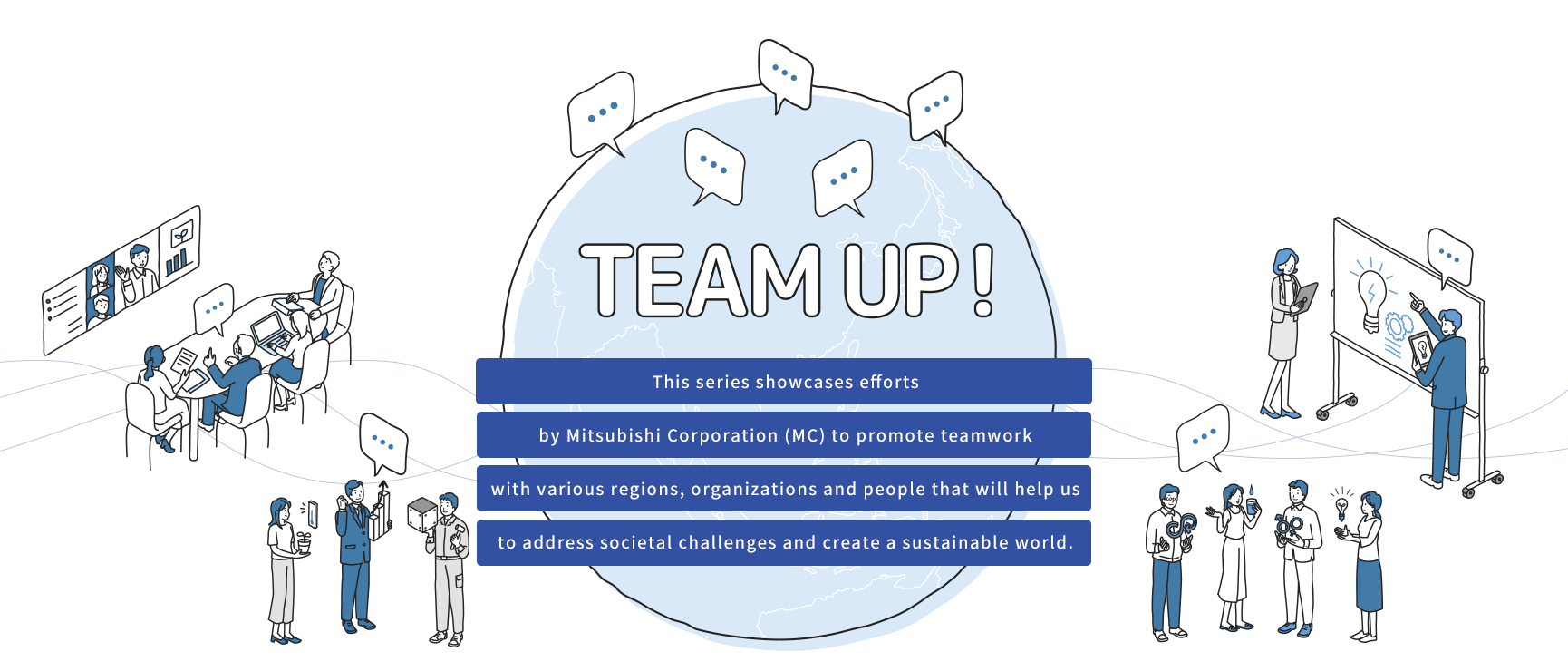
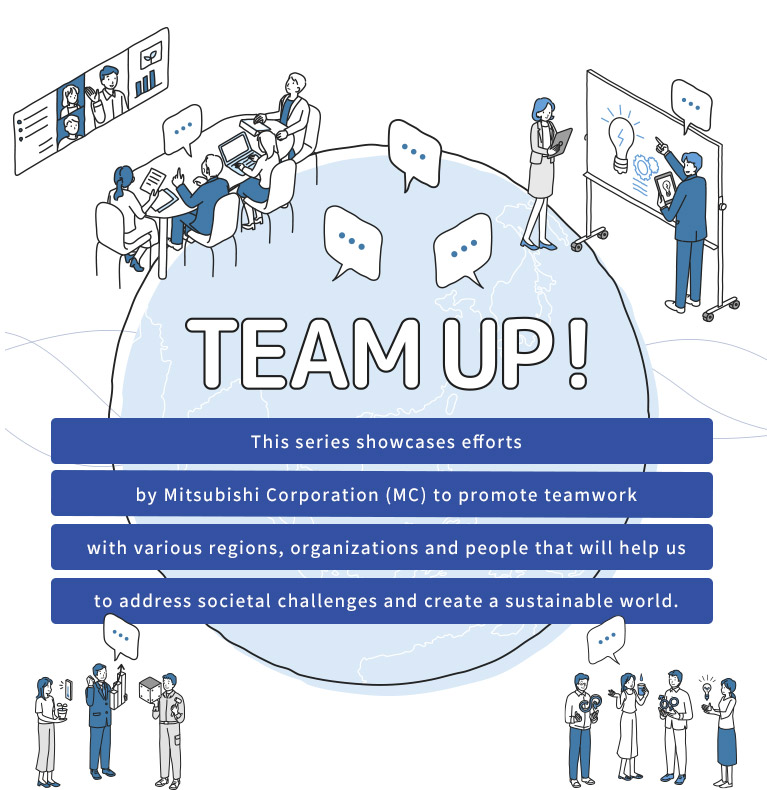
Accelerating Decarbonization with Leading International Enterprises TEAM UP for a Sustainable World
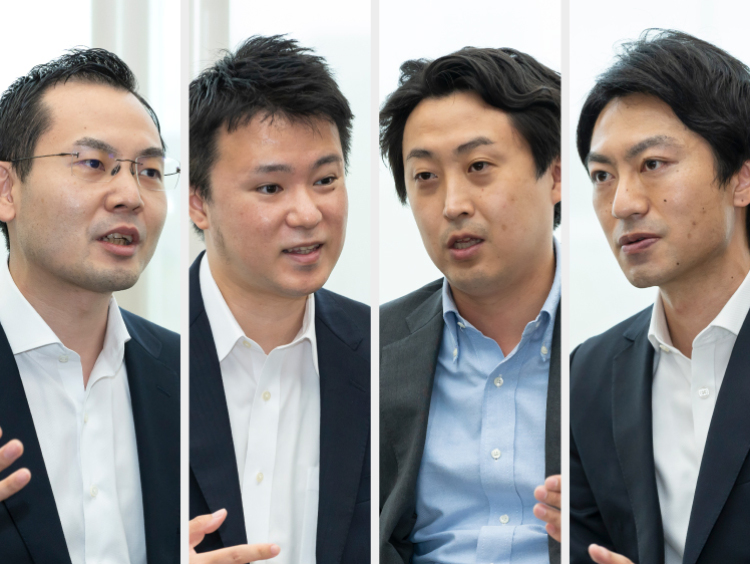
Breakthrough Energy Catalyst (BEC) (1)
The good news is that our world is taking steps to address climate change in accordance with the Paris Agreement's international rules on global warming. On the other hand, that if we truly hope to achieve the agreement's targets and decarbonize our societies, then we need to work much faster and on a much larger scale. This is where Microsoft founder and global philanthropist Bill Gates enters the picture. His Breakthrough Energy Catalyst (BEC) program is dedicated to accelerating societal adaptations of net-zero energy technologies, and MC is currently the only enterprise headquartered in Asia to be taking part in it. What prompted the sogo shosha to get onboard, and what roles can it play as a BEC member? To find out, we sat down with four of the company's representatives at its Tokyo headquarters.
Solving the "Chicken and Egg" Problem
No matter how revolutionary clean technologies may be, they will have little impact on climate change if they are not adapted by society. The biggest hurdle is the tremendous costs of scaling up a technology from the pilot-project stage.
Take solar power for example. Although regions all over the world are using it today, it took three decades for it to become commercially available. This illustrates the gravity of the situation, because three decades is all time we have left to achieve the carbon-neutral-by-2050 plans announced in Japan and elsewhere. The keys to realizing those plans will be getting clean technologies to markets and shortening their commercial-scale timelines.
"The suppliers of clean technologies say that they'd make them cheaper if only they could sell a lot more of them, while consumers say they'd buy a lot more of them if only they were cheaper. It's a chicken-and-egg problem, and one that has really slowed something of great urgency, namely societal adaptations of these solutions."
Keigo Chijiiwa works for MC's Natural Gas Group, and he understands all too well the difficulties of scaling up clean technologies.
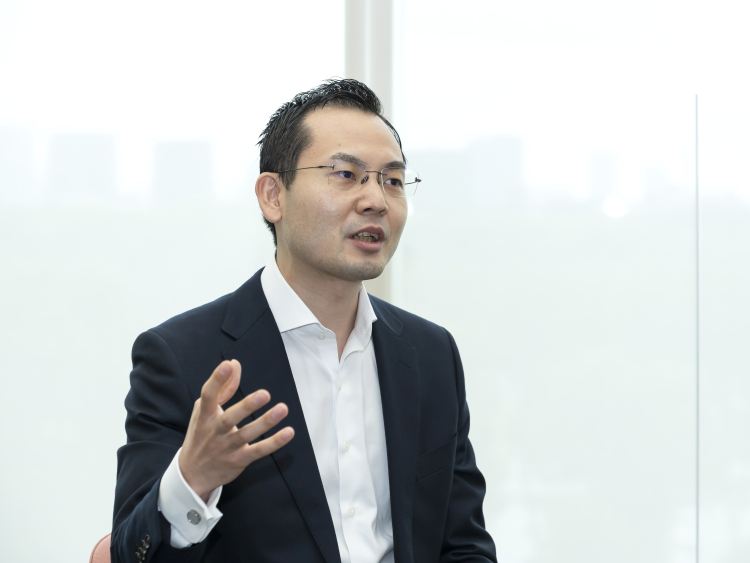
BEC aims to solve this problem and promote net-zero energy innovations.
In addition to supporting both the providers and users of clean technologies, Bill Gates' program leverages government engagement to function as a three-player "catalyst" (hence its name) for the scaling up of cutting-edge technologies designed to reduce or prevent carbon emissions.
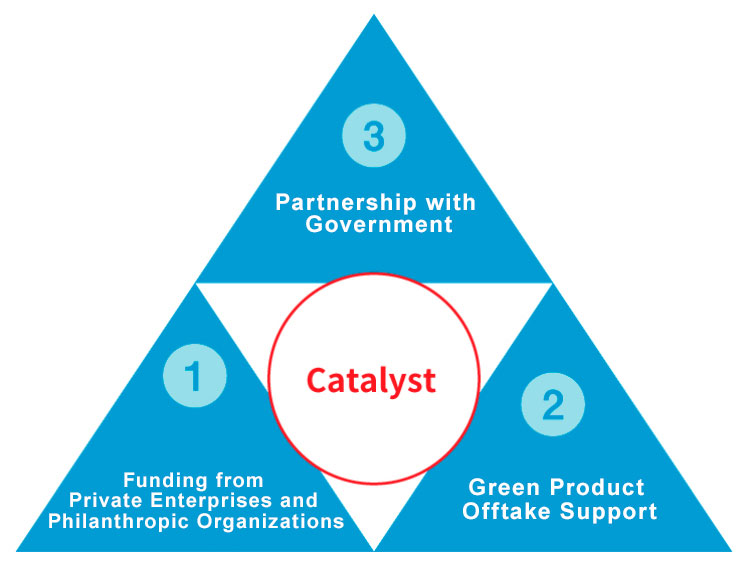
The BEC platform is designed to function as a public-private catalyst, expediting societal adaptations of innovative clean technologies.
BEC's initial focus will be on the following four technologies that have already proven their potential through research and development: (1) Clean Hydrogen (and related infrastructure), (2) Long-duration Energy Storage (LDES), (3) Sustainable Aviation Fuel (SAF), and Direct Air Capture (DAC). In addition to leveraging significant funding from private enterprises and foundations to help reduce the costs of emerging clean technologies, BEC will connect eco-conscious green products with consumers that have entered into agreements to buy down any remaining extra costs associated with them (the program's so-called "Green Premium"). The fund also includes a mechanism to attract financial assistance from governments, and is said to be worth several trillions of yen in total.
"There has never been such a large initiative to help scale up net-zero energy technologies," says Chijiiwa. "To quote Bill Gates, 'this will be the greatest opportunity for innovation in human history.'"
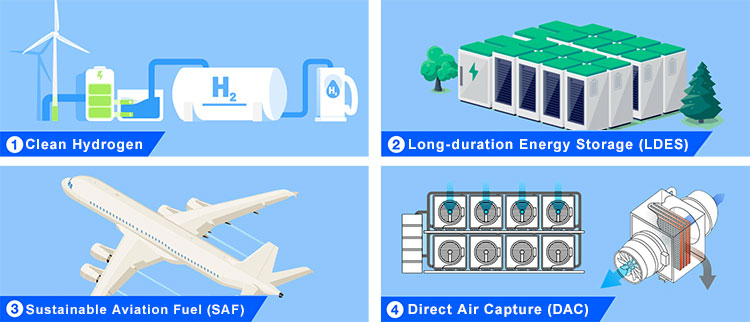
Can Technology Overcome the Disadvantages of Renewable Energy?
Having unveiled its own roadmap to carbon neutrality in October 2021, MC has publicly disclosed its targets to reduce its greenhouse-gas emissions by 2030 and be a net-carbon-zero enterprise by 2050. As a sogo shosha engaged in so many industries, what challenges does MC anticipate when it comes to decarbonizing its operations, and what value does the company see in taking part in BEC?
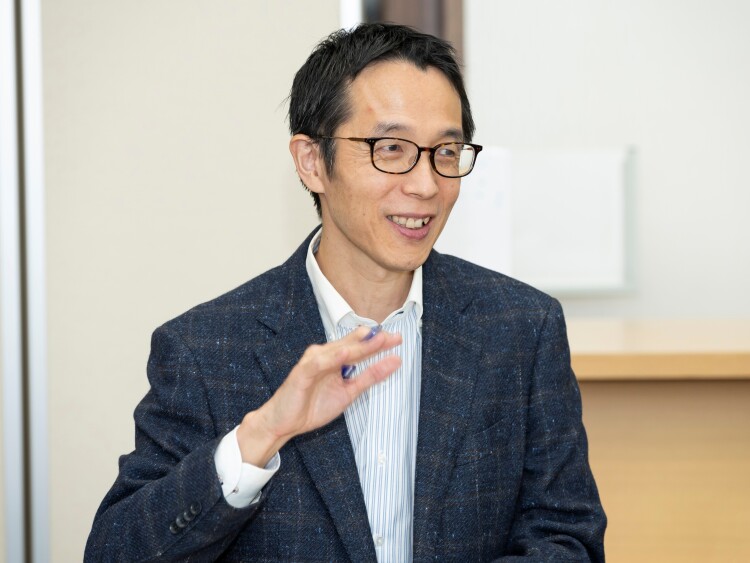
Takeshi Ogino works for MC's Power Solution Group, which is engaged in both power generation and transmission businesses. Its focus at present is on renewable energies.
According to Ogino, MC started making serious headway in 2020, when it gained headlines for its co-purchase of Eneco, an integrated energy company based in the Netherlands whose core operations are in renewables.
"Our aim is to double our 2019 renewables capacity by 2030 and use renewables to create a new value chain," he says.
The trouble with making renewables our go-to energy is their heavy reliance on environmental conditions, meaning that MC must figure out how to deal with supply instabilities inherent to solar, wind and other green power options. Ogino is hopeful that the answer lies with LDES, which just happens to be one of BEC's targeted technologies.
"More and more innovative LDES technologies are being developed worldwide," says Ogino. "If they can be commercialized and used widely by societies, then they should not only stabilize power supply from renewables, but also ensure that surplus energy does not go to waste. All of that will help to lower costs. Using renewable energies efficiently will be particularly beneficial to Japan and other parts of Asia, which have very few renewable resources of their own."
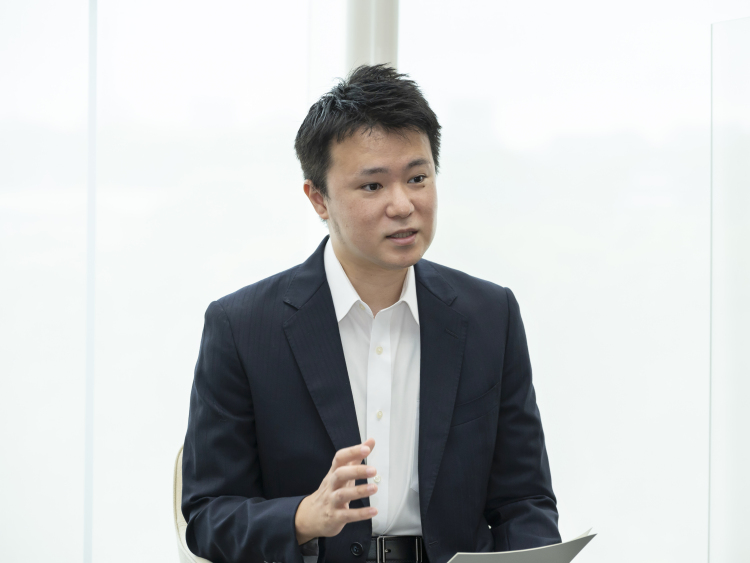
Costs are an unavoidable barrier to forging next-generation, renewables-based value chains.
For instance, systems that produce green hydrogen by using renewable energy to split water into hydrogen and oxygen (a process known as electrolysis), are one example of cutting-edge, zero-carbon technologies whose sheer expense has made them commercially unviable.
Clean Hydrogen
Clean hydrogen is hydrogen that is produced with zero or few carbon emissions. It includes both green hydrogen, which is produced by renewables, and blue hydrogen, which is produced from fossil fuels but includes mechanisms to capture and store CO2.
At present, most of the world's hydrogen is derived from oil, natural gas and other fossil fuels, and that is unlikely to change unless we can lower the cost of producing green hydrogen and achieve greater stability in renewable energy supplies. But Ogino is thinking positively.
"BEC can help to scale up highly efficient electrolyzers, which should bring down the cost of producing green hydrogen. Also, because BEC plans to connect with both the suppliers and users of next-generation energy, we can create new value chains and help to establish new, carbon-neutral industries at the same time."
Challenges in CO2-Heavy Industries Like Aviation and Steelmaking
Figuring out how to decarbonize is a serious issue for certain CO2-emission-heavy industries, such as aviation, marine transport, steel, cement and chemical. The same can be said for the manufacturing of fuel and chemical materials & products, which is the focus of MC's Petroleum & Chemicals Solution Group.
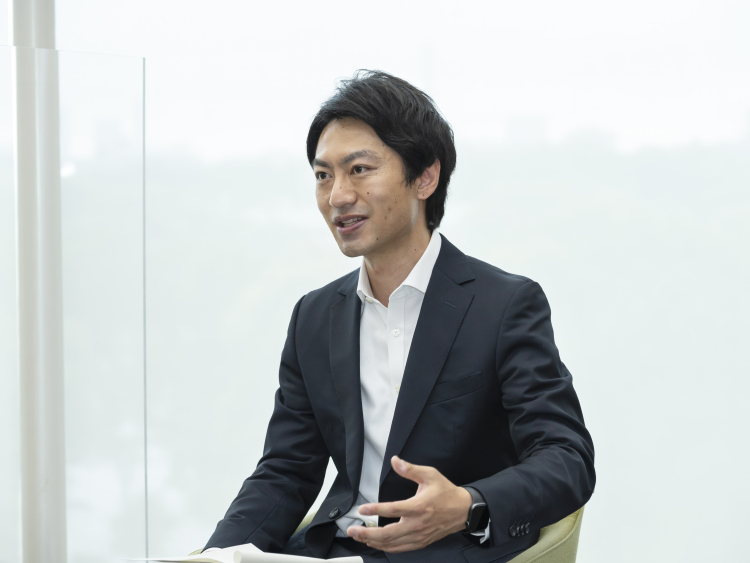
Among those products is aviation fuel, a field in which cutting CO2 poses a particularly daunting challenge. The group's Yusuke Katagiri explains.
"Aircraft require huge amounts of energy, and because they have limited space to store their fuel, they aren't easy to convert to electricity or hydrogen. This is why the world's aviation industry is now looking to sustainable aviation fuels, or SAFs."
Sustainable Aviation Fuel (SAF)
SAFs emit far less CO2 that conventional aviation fuels derived from petroleum-based feedstocks. They are produced by renewable energy sources, including woody biomass, used cooking oils and green hydrogen, are compatible with existing aviation infrastructure and can even be mixed with conventional fuels.
Countries around the world have set down targets for their aviation industries to switch to SAFs. The US hopes to have all of its aircraft SAF-powered by 2050, while the EU's goal is 63% by 2050 and Japan's is 10% by 2030.
"Unfortunately, the technologies needed to commercialize SAFs are not fully developed, so current SAF production is less than 1% of global demand," says Katagiri. "Through our commitment to BEC, we will be able to help establish SAF manufacturing systems, and by monitoring the progress of those most suitable to conditions in Japanese and Asian aviation, I think that we can make a meaningful contribution to the building of an SAF supply chain."
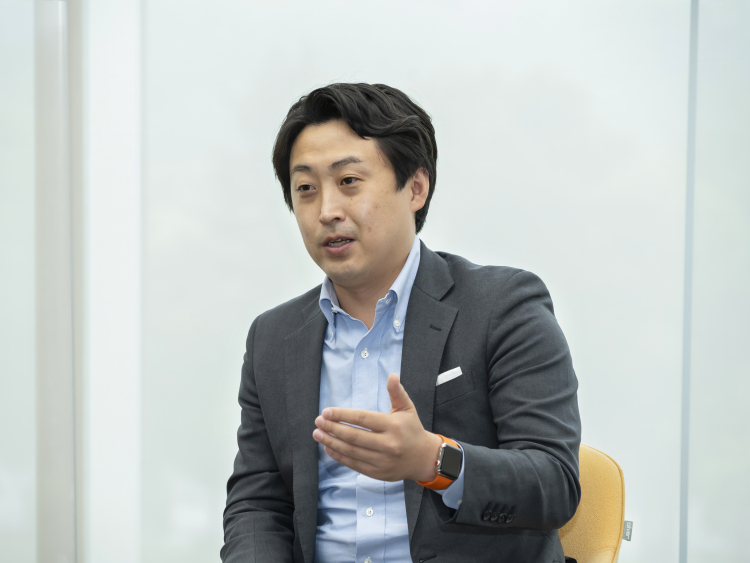
Masao Koyama of MC's Mineral Resources Group is equally optimistic about BEC's impact on accelerating innovation.
An effective way to decarbonize the steelmaking industry involves using hydrogen instead of coal to produce direct reduced iron (DRI), which is iron derived from iron ore that has had its oxygen removed. The challenges with hydrogen-based DRI are in establishing the technologies and affordably sourcing large quantities of the hydrogen.
"BEC has made clean hydrogen one of its four target areas for investment, and securing stable supplies of this clean resource will be crucial to advancing decarbonization technologies," says Koyama.
Steelmaking is a notoriously difficult industry when it comes to reducing carbon emissions, and if we hope to make progress in doing so, then we are going to also need technologies that are designed to remove CO2. One such technology is direct air capture, or "DAC," which as its name suggests involves capturing the CO2 directly from the air. Koyama provides some insight on the potential of these systems.
"I recently toured a facility where a small-scale DAC apparatus is already in use, but the cost of this technology remains an issue. If we can leverage the BEC framework to effectively scale these systems up, then they promise to have a big impact on cross-industry decarbonization all over the world."
Direct Air Capture (DAC)
DAC systems employ cutting-edge technologies to extract CO2 directly from the atmosphere. They are considered one of the keys to realizing carbon-neutral societies.
The Mission and Responsibilities of Asia's Only Anchor Partner
MC has garnered attention for its decision to invest in BEC and become the fund's first anchor partner headquarterd in Asia.
BEC's other anchor partners include Microsoft, American Airlines and steel major ArcelorMittal. They play leading roles in BEC's decision making, which includes selecting which projects to invest in.
MC is shouldering some heavy expectations.
Approaches to decarbonization differ from one country or region to the next, and success stories in Europe or US are not guaranteed to work well in Asia. Renewable-energy potentials, existing power systems, industrial structures, lifestyles and other factors all have a bearing on decarbonization, and all of them tend to be quite unique to each region. In addition to being keenly aware of the issues facing Asian nations, MC boasts contacts and networks in numerous industries, and for those reasons, BEC will be looking to the sogo shosha to make a meaningful impact in our region.
"Swiftly scaling up the technologies that are best suited to each region and achieving global carbon neutrality will be no easy tasks," says Chijiiwa. "This is why it is so important to incorporate the know-how and networks of anchor partners, as they are the ones with the deepest connections to their respective regions. I am confident that MC can play important roles in BEC's activities throughout Japan and Asia, where we can function as a hub for joint innovation."
The Dominos Have Been Set Towards a New Future
In May 2022, MC unveiled its latest management plan, entitled "Midterm Corporate Strategy 2024 -- Creating MC Shared Value."
The company describes its concept of shared value as working hand in hand with customers, partners and society as a whole to solve societal problems and create new value. This conforms to BEC's philosophy of enterprises, consumers and governments working together to decarbonize our planet.
Furthermore, considering that BEC's four targeted technologies match the areas that MC is focusing on under its energy transformation (EX) strategy, the company recognized how investing in the fund could also give rise to new business opportunities. Chijiiwa elaborates on MC's motives for joining the program.
"Commiting to BEC allows us to invest in advanced technologies, which can lead to our using those technologies to complement our industry know-how and grow our operations in the future. BEC also enables us to build networks with leading international companies, which can help us to capture business opportunities that MC might be incapable of pursuing on its own. So in other words, this program will not only present solutions to societal problems, but also spur business development at MC."
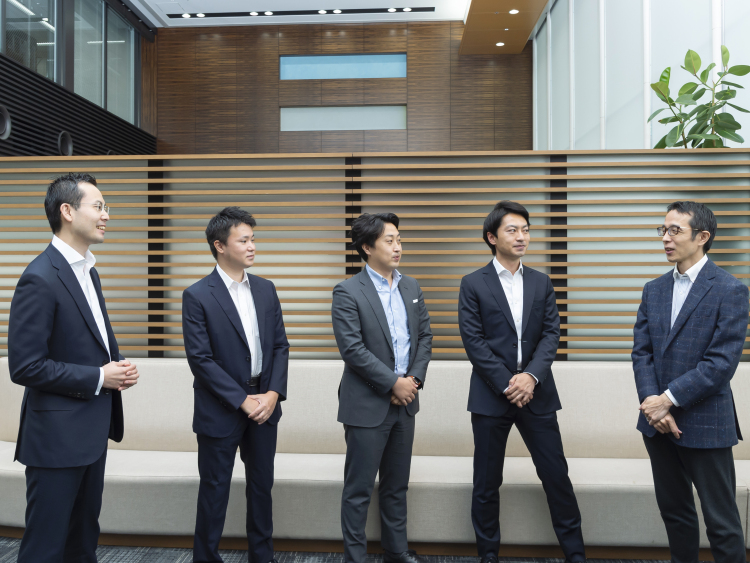
"Those of us here at MC also need to collect more intelligence," adds Katagiri. "Japan talks about being carbon neutral by 2050, but the truth is that oil still accounts for roughly 40% of its primary energy supply. That's not something we're going to be able to change today or tomorrow."
"The question is, how do we balance our needs for energy stability and decarbonization? It's vital that MC continues doing its best to gather more intelligence, including that pertaining to decarbonization and its impact on the global energy situation, trends of relevant industry players, and maturation levels of technologies being examined by BEC."
"We're never going to speed up efforts to decarbonize until someone tips over the first domino, and I think BEC will be the one who does that," says Koyama. "MC will do its best as a member of the program and steadily expand its circle of net-zero collaboration. We're confident that this collaboration will help our planet to achieve carbon neutrality by 2050."
- * Volume 2 will feature the first half of a roundtable discussion with MC's project team in the US.
- * The interviews conducted for the purpose of this article were carried out in accordance with pandemic-related measures. Masks were only removed for photographs.
- Breakthrough Energy Catalyst (BEC) (1)
- Breakthrough Energy Catalyst (BEC) (2)
- Breakthrough Energy Catalyst (BEC) (3)
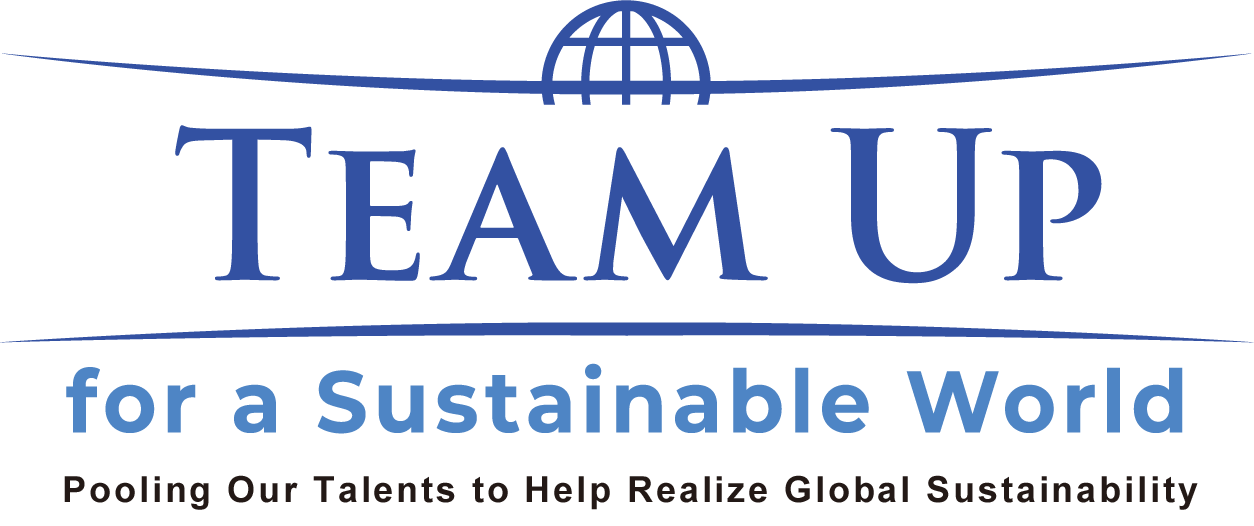

Long-duration Energy Storage (LDES)
As LDES systems can store power generated by renewables, their value is expected to grow in the future. Examples of these systems include next-generation storage batteries, kinetic energy and hydrogen energy.